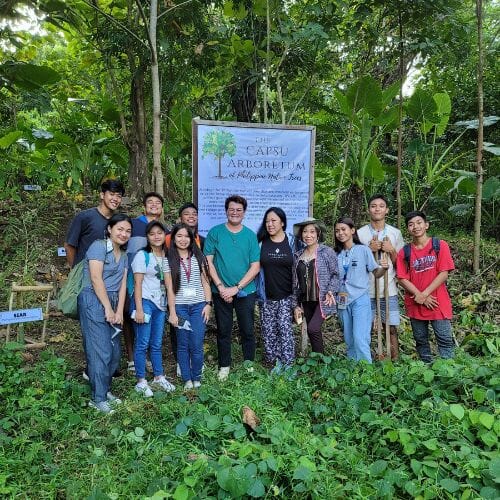In a world that often overlooks the treasures of nature, the Philippines stands as a true marvel. It is a haven for biodiversity, proudly reigning as the number one hotspot for endemic species worldwide. However, beneath this veneer of natural splendor lies a grim reality – the decline of our primary forests, endangering countless endemic flora and fauna. We are excited to unveil a groundbreaking collaboration that holds the promise of redemption. Herbalaria, in partnership with Capiz State University/Capiz Ecology and Conservation Center, is embarking on a monumental journey of saving primary forests and native trees.

A Precious Heritage at Stake
The Philippines' title as a biodiversity hotspot is both a point of pride and a call to action. The astonishing variety of plant and animal life that call these islands home is unique and irreplaceable. However, the alarming rate of deforestation and urban expansion has cast a shadow over this natural treasure trove. We cannot ignore the critical state of our primary forests, which are not only homes to countless species but also integral to the survival of our planet and our people.

A Ray of Hope: Capiz Ecology and Conservation Center
Herbalaria is thrilled to be in partnership with Capiz State University/Capiz Ecology and Conservation Center in the establishment of the CapSU Arboretum of Philippine Native Trees, that is bound to change the course of conservation on the island of Panay. The collaboration represents a beacon of light in the midst of environmental darkness. This pioneering initiative is dedicated to the preservation of endangered and Indigenous trees of Capiz, serving as a symbol of our commitment to repairing the bond between humankind and Mother Nature.

A Call to Action
The arboretum is more than just a collection of trees – it is a call to action for everyone who shares this planet. The decline of our forests has far-reaching consequences, including soil erosion, habitat loss, and the extinction of plant and animal species. Moreover, this ecological decline directly affects the Indigenous communities that rely on these forests for sustenance and livelihood. As we unveil this ambitious project, we invite Pamilya Herbalaria (you), and everyone who cares about our planet's future, to join hands in supporting the creation of this arboreal haven.


Uniting for a Common Cause
Herbalaria's partnership with Capiz State University/Capiz Ecology and Conservation Center is a testament to the power of collaboration. Dr. Harold Ortiz Buenvenida's leadership and dedication to this project have paved the way for a brighter future. This arboretum is not just a place for trees – it's a place for connection, learning, celebration, and cultural preservation.


A Grateful Heart
As we embark on this journey to restore and revive our environment, we extend our heartfelt gratitude to Capiz State University and Dr. Harold Ortiz Buenvenida for their unwavering support and commitment. And to you, our beloved Pamilya Herbalaria, we urge you to stand with us, to champion the cause of conservation, and to become stewards of this invaluable project.

In the Spirit of Unity
In the spirit of community and in reverence for the natural wonders that grace our land, let us come together as one. The CapSU Arboretum of Indigenous Trees is a testament to our shared commitment to healing, revitalizing, and celebrating our rich environmental heritage. Together, we can forge a path toward a brighter, greener future – a future that we all deserve.*
Madamo gid nga salamat sa inyong lahat, mga palangga, Pamilya Herbalaria!
Copyright © 2024 by Herbalaria. All rights reserved.

